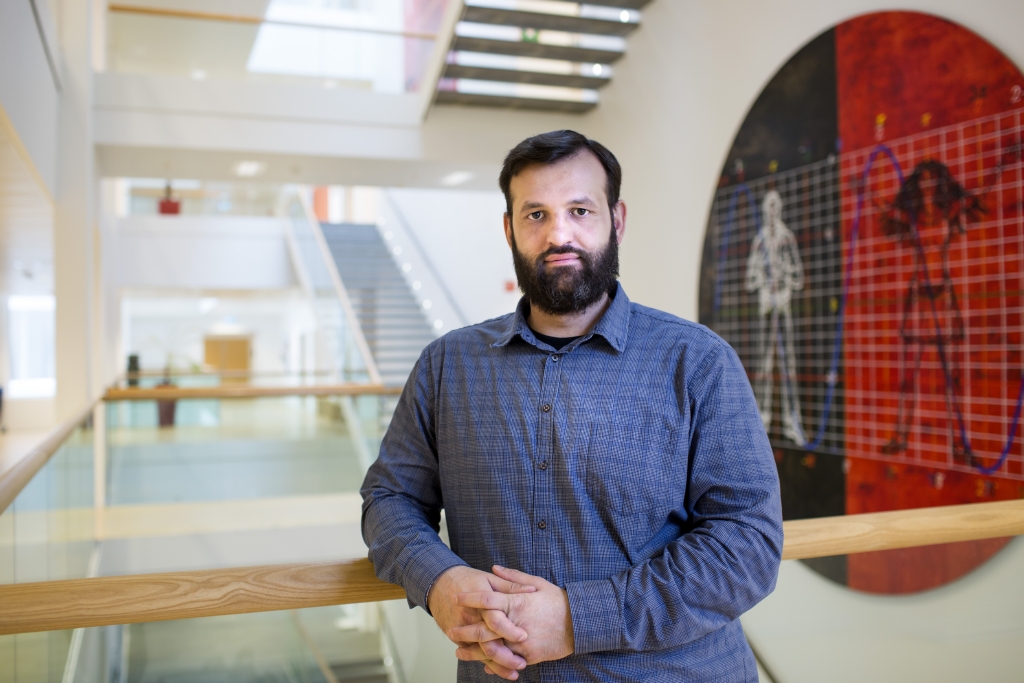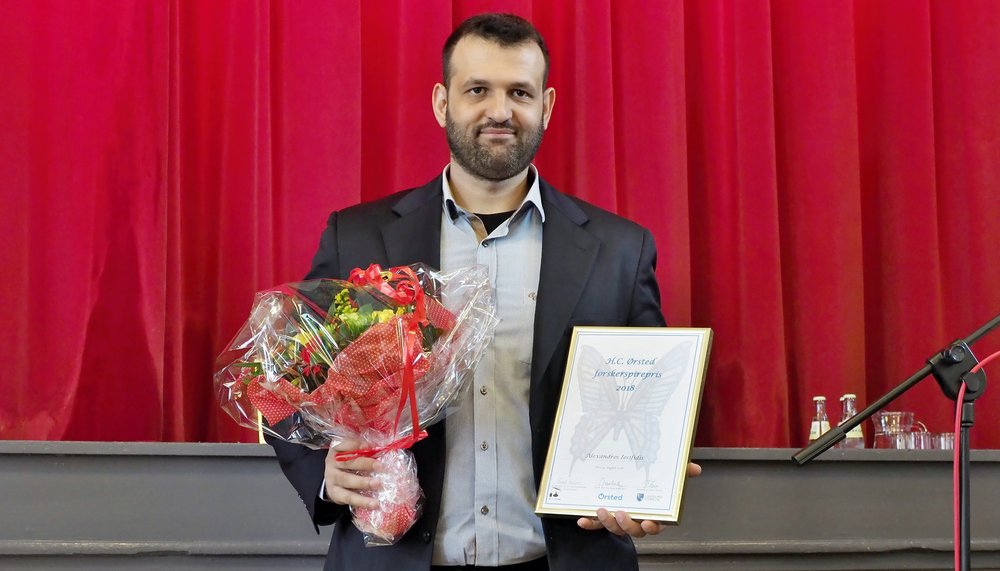Årets Ørsted-pris går til ekspert i maskinlæring
Alexandros Iosifidis fra Institut for Ingeniørvidenskab ved Aarhus Universitet modtager Hans Christian Ørsted Forskerspirer-prisen 2018 for sit videnskabelige arbejde med signalbehandling og maskinlæring.

Han stammer fra Grækenland og har blot været i Danmark i få år. Kendskabet til den store danske tænker er perifert, men det er alligevel med stolthed, at han modtager H.C. Ørsted-prisen for sit bidrag til videnskaben.
"Det er en anerkendelse af min forskning og mit arbejde med neurale netværk og med at udvikle matematiske modeller, der kan forbedre den maskinlæringsteknologi, vi kender i dag," siger Alexandros Iosidifis, adjunkt på Institut for Ingeniørvidenskab, Aarhus Universitet.
LÆS OGSÅ: Eksperimentale fondsmidler til nye, dristige ingeniørprojekter
Han har i en alder af blot 34 år mere end 100 publikationer i videnskabelige tidsskrifter bag sig.
(Artiklen fortsætter under billedet - kun på engelsk)

Alexandros Iosifidis modtager her H.C. Ørsted-prisen 2018 for sit videnskabelige arbejde med signalbehandling og maskinlæring. (Foto: Ørsted)
A pioneer behind intelligent recognition of human actions
Alexandros is one of the pioneers behind the recognition of human actions through images and videos. In his academic career, he has worked on several research projects applying this technology to many different areas.
In one project for example, he has worked on prolonging the independent living for elderly based on machine intelligence solutions in their homes. In another project, he has developed algorithms for the financial sector. And in a third project, he has enabled production robots to work with people.
LÆS OGSÅ: Forskningsprojekt identificerer kæmpe produktivitetspotentiale i byggeriet
He is currently working with drones, and his goal is to improve the ability of these flying robots to analyse visual information from the air, understand what is going on in their environment and then make smart decisions.
All this, is basically about signal processing, which makes it possible for a computer to analyse signals with a degree of precision that is simply impossible for a person to achieve.
"We train the computer to analyse information having different forms, like images, videos, sensor signals and text, to detect patterns in data, group and classify these patterns and make predictions in efficient ways," says Alexandros Iosifidis.
Wants to automate and democratize machine learning
Together with his research colleagues, he is opening the next chapter of the history of technology, in which the goal is to automate and democratize machine learning.
LÆS OGSÅ: Ingeniørstuderende udvikler bioreaktor, der skal gro ægte hjerteklapper
"A higher degree of automation. That’s our goal. Today, machine learning is still controlled by input from experts. For example, take the camera in your Smartphone. It can recognise faces. This means that the camera has a method to identify different elements in the images. It’s been trained, so to speak, to distinguish between the patterns of faces and patterns of objects and the background. But this doesn’t happen automatically. Experts have designed all the details of the system that makes the method for this recognition and distinction possible. That’s what we want to change. We want the computer to be able to automatically find all these details," he says.
Computers will take over the trivial work
This level of automation is also a technological step that will make machine learning available and usable by non-experts in everyday life. So far, we have no idea where this could lead. But according to Alexandros, the starting point for the development is very positive.
"Computational Intelligence will come to play a much larger role in our daily lives. Machines will take over many automated functions, and we humans will be able to release our own resources for other purposes. We’ll escape from all the trivial work and we’ll be able to apply our intellect and creativity in better ways," he says.
Contact information
Assistant Professor Alexandros Iosifidis, Department of Engineering, Aarhus University
